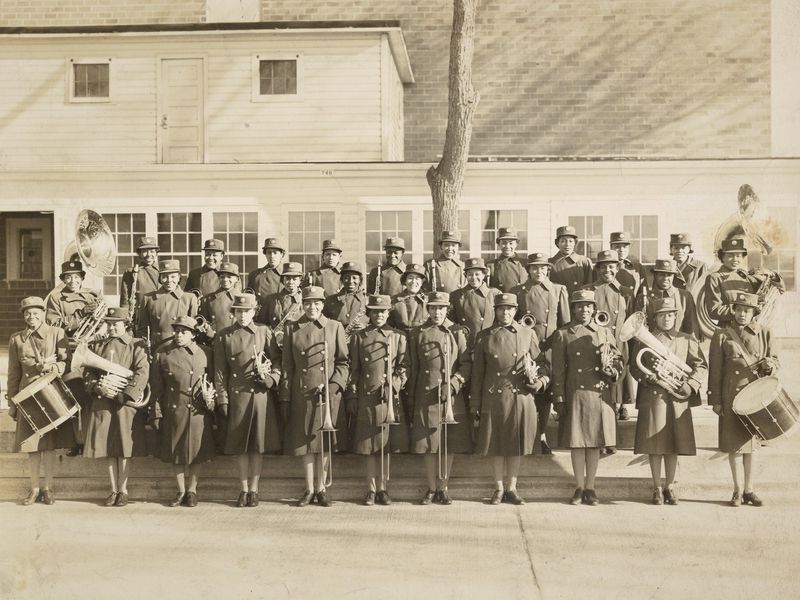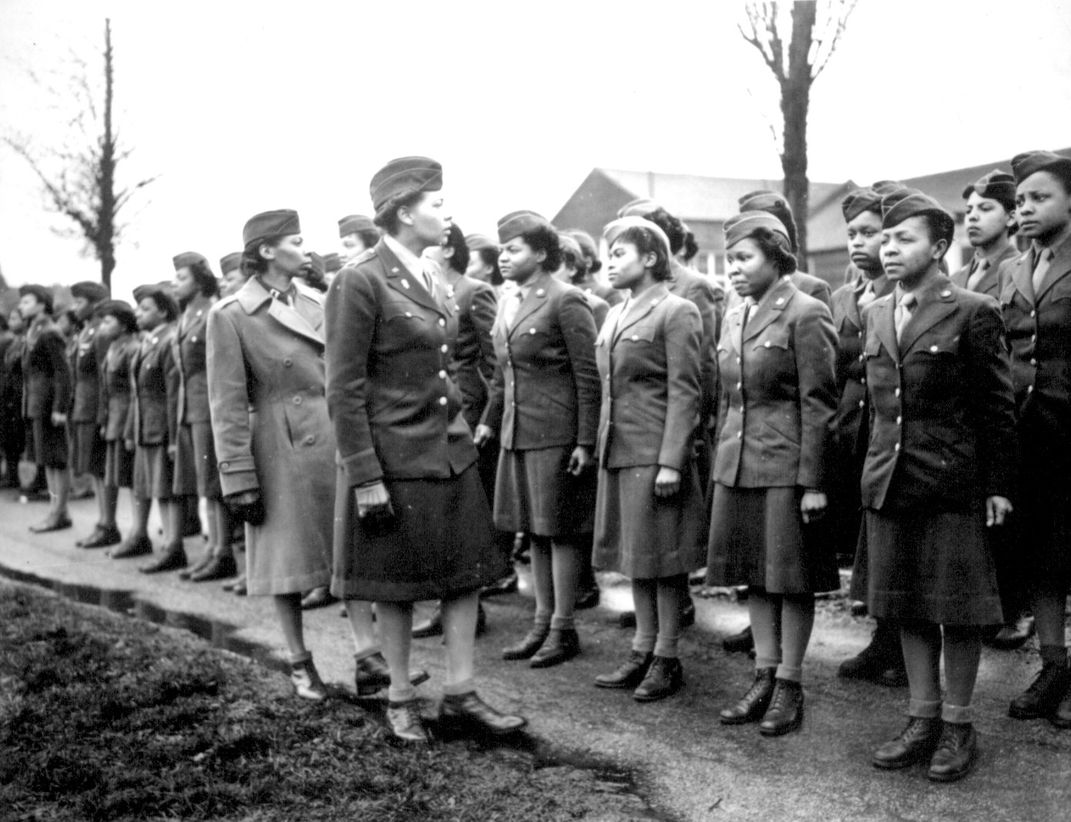
Memorial Day is a U.S. Holiday to remember veterans who have sacrificed for their Nation. Originally known as Decoration Day, it originated in the years following the Civil War and became an official federal holiday in 1971. Many Americans observe Memorial Day by visiting cemeteries or memorials, holding family gatherings and participating in parades. Also, it unofficially, marks the beginning of the summer season.
This includes military musicians, especially women who have served in the military band. Seventy-seven years ago, one such band was the military’s only all-black female band; the 404th Armed Service Forces band. What made them even more remarkable is how they battled the war department against sexism and racist segregation – and won.
Back in May of 1945 during the end of World War II, nearly 100,000 people filled the intersections in Chicago’s central business district for a war bond rally. Former prisoners of war (POW) appeared on stage, and the famed flag-raisers of Iwo Jima pushed war bonds to finance the war in the Pacific as a 28-member military band played patriotic music – the women of the 404th Armed Service Forces (ASF) band. They were only all-black female band in U.S. military history. It was the female musicians who helped raise millions in war bonds. Yet, despite accomplishing this, these women were still deemed less than worthy due to continuing sexism in the military and work place. But, for the women of the 404th ASF, they battled sexism and extreme racial segregation. Even though the Army Nurse Corps had existed as a uniformed military “organization” since 1901, the military denied women equal pay, rank or benefits.
It was in May 1941 that Massachusetts Congresswoman Edith Rogers introduced a bill to allow women to join the Army in a noncombatant role, but with the same rank and status as men.
“Society in general doesn’t understand the value of the military band for men and women at war,” says Jill Sullivan, a military band historian at Arizona State University. Fort Des Moines started the military’s first all-female band in 1942 to replace a reassigned men’s band, but also, says Sullivan, to honor military tradition during wartime. “What [the War Department] found out was that the women were a novelty,” says Sullivan.
The first Women’s Army Corps (WAC) band – officially the 400th Army Service Forces Band – became an instant hit and a “showpiece for WAC women.” In addition to performing at local concerts, the all-white 400th ASF Band toured across North America on war bond drives, sharing stages with Bob Hope, Bing Crosby and former President Ronald Reagan. When the second Women’s Auxiliary Army Corps (WAAC) center opened up in Daytona Beach, Florida, musicians from Fort Des Moines transferred there to start another band, the 401st. Three other WAAC bands would later form. “Whether they were private and public school music teachers, teaching and performing majors in college and graduate school, amateur and professional performers, no Negroes who auditioned were found to be qualified to play with the white band.” Earley said in her memoir, One Woman’s Army.
Then-Major Charity Adams came to the realization that no black woman would be allowed in the white band, so she pushed for the women to have their own. Letters from several musicians place blame for discrimination on one man: fort commandant Col. Frank McCoskrie.
In fall of 1943, McCoskrie approached Sgt. Joan Lamb, director of the 400th, telling her there was a need to start an “all-Negro company” in order to address the complaints of discrimination among black servicewomen and civil rights leaders. By 1944, Adams had become the African-American training supervisor at Fort Des Moines, and one of her favorite parts of the job was nurturing the military’s first and only all-black female band. Overcoming severe roadblocks by the military, the 404th ASF Band would go on to inspire the black community in protesting President Franklin Delano Roosevelt against the temporary deactivation and racial segregation. During the three years the Women’s Army Corps (WAC) program existed during World War II, 6500 African American women served. At the end of 1944, 855 black servicewomen followed Major Adams overseas in the 6888th Central Postal Directory Battalion, the only all-black Women’s Army Corps unit to serve overseas.
And by 1948, President Harry Truman finally desegregated the armed forces, and General Eisenhower persuaded Congress to pass the Women’s Armed Service Integration Act, which reestablished the Women’s Army Corps as a permanent part of the Army. The military also reactivated the 400th ASF band as the 14th WAC Band, the legacy of the five World War II WAC bands, one of which helped lead the way on racial desegregation.









